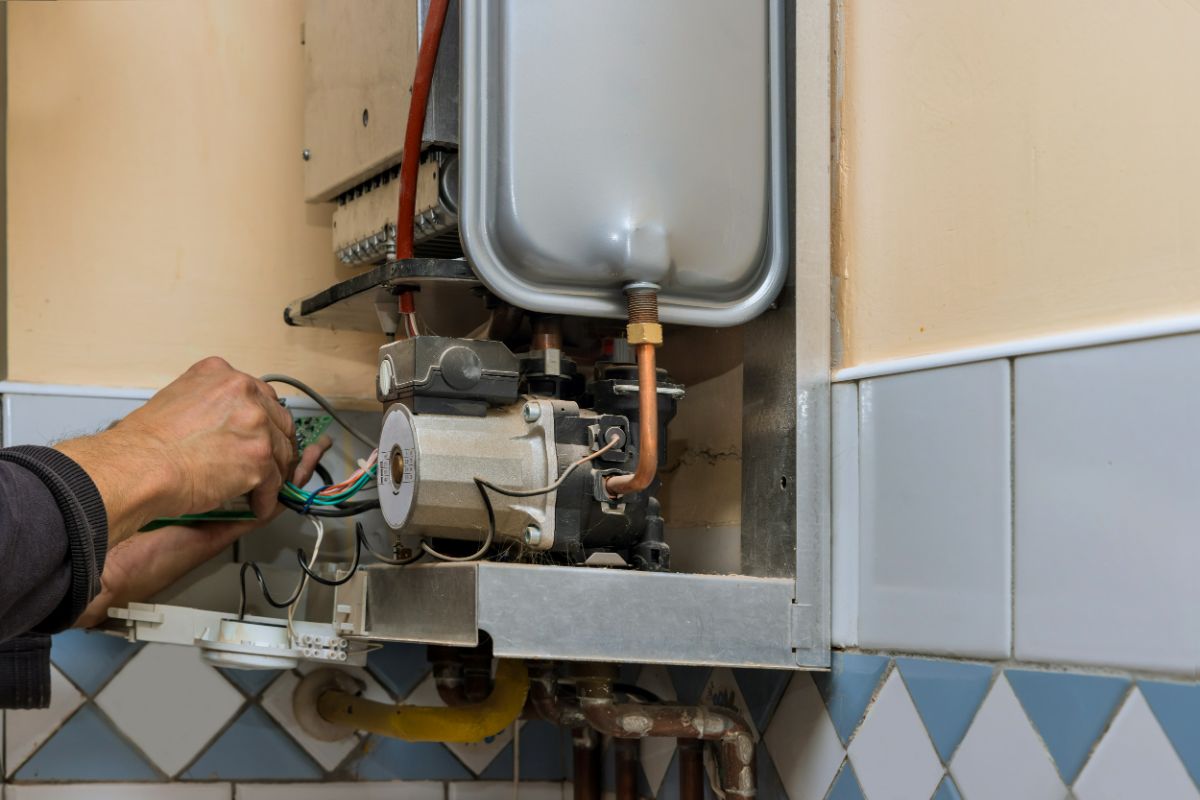Ensuring Longevity of Your Home's Hot Water System: Care Advice
Ensuring Longevity of Your Home's Hot Water System: Care Advice
Blog Article
How do you actually feel in regards to Water Heater Maintenance Tips You Can't Afford to Forget?

Warm water is necessary for everyday comfort, whether it's for a refreshing shower or washing recipes. To guarantee your hot water system runs efficiently and lasts much longer, regular upkeep is vital. This post offers practical ideas and insights on how to maintain your home's warm water system to stay clear of interruptions and costly fixings.
Intro
Maintaining your home's warm water system may seem complicated, however with a couple of basic steps, you can guarantee it operates smoothly for several years to find. This overview covers everything from recognizing your hot water system to do it yourself upkeep tips and recognizing when to contact professional aid.
Relevance of Preserving Your Warm Water System
Routine maintenance not just extends the life-span of your hot water system yet also ensures it runs efficiently. Disregarding maintenance can bring about reduced performance, higher power expenses, and also premature failure of the system.
Indicators Your Warm Water System Needs Upkeep
Recognizing when your hot water system needs attention can avoid significant concerns. Look out for indications such as irregular water temperature level, strange noises from the heater, or rustic water.
Purging the Hot Water Heater
Flushing your water heater eliminates debris build-up, improving efficiency and lengthening its life.
Checking and Replacing Anode Rods
Anode rods stop deterioration inside the container. Inspecting and replacing them when worn out is important.
Complex Problems Needing Expert Aid
Instances consist of significant leaks, electrical problems, or if your hot water heater is continually underperforming.
Regular Professional Maintenance Benefits
Professional maintenance can include extensive assessments, tune-ups, and making certain conformity with safety and security criteria.
Evaluating and Readjusting Temperature Level Setups
Readjusting the temperature level settings guarantees optimal performance and safety.
DIY Tips for Maintenance
You can perform several upkeep jobs yourself to keep your hot water system in top condition.
Checking for Leaks
Regularly evaluate pipelines and links for leakages, as these can lead to water damage and greater costs.
Recognizing Your Hot Water System
Before diving into upkeep jobs, it's useful to understand the basic parts of your warm water system. Normally, this includes the water heater itself, pipes, anode poles, and temperature level controls.
Month-to-month Upkeep Tasks
Normal month-to-month checks can aid capture small problems before they rise.
Checking Pressure Relief Valves
Evaluating the pressure relief valve guarantees it operates appropriately and protects against excessive stress accumulation.
Protecting Pipes
Insulating hot water pipelines lowers warmth loss and can conserve energy.
When to Call a Professional
While do it yourself upkeep is helpful, some problems require professional experience.
Final thought
Routine maintenance of your home's hot water system is essential for efficiency, long life, and expense savings. By following these pointers and recognizing when to look for expert aid, you can make sure a dependable supply of warm water without unexpected disturbances.
How to Maintain and Troubleshoot Your Heat Pump Water Heater
Know Your Water Heaters Error Codes and How to Clear Them
If your unit is WiFi-enabled, pay attention to the notifications your water heater system sends you and make sure to read and investigate error codes as soon as possible. If your machine has an error code readout on the unit, use your owner’s manual for the hot water heater and find out what the codes mean and how they might be affecting your water heating system. Follow the manufacturer’s directions to assess the issue and clear the code, or call a licensed plumber to take care of that for you.
Change Your Filters Monthly or As-Needed
Heat pump water heaters come equipped with an air filter, usually on the top of the unit where the water heater pulls air into the compressor. Check the filter every few months (put a reminder in your smartphone to make sure you don’t forget!). This will keep peak air flowing into your unit, helping it to work as efficiently as possible and resulting in energy savings over time.
Clean the Condensate Lines
Heat pump water heaters have a condensate drain. As the unit dehumidifies the surrounding area, the moisture has to go somewhere! Make sure to clean this condensate line every year to ensure it doesn’t get backed up with sediment or mold.
To clean the condensate lines, pour a cup of bleach in the access opening of the unit to kill any mold or mildew. Check that the bleach or water flows freely out of the lines, and unclog the lines if needed.
Flush Your Heat Pump Water Heater Annually
Heat pump water heaters are also sometimes referred to as hybrid heat pump water heaters. This is because they contain a backup heating electric heating element inside the tank: the same kind of anode rods used in traditional electric water heaters. That anode rod can become corroded over time from the minerals in your water, and it can begin to decay, break entirely, or heat less efficiently as it becomes corroded. One way to minimize or avoid this corrosion is by flushing your heat pump water heater annually. Just like flushing standard electric or gas water heaters, flushing your water heater is something that any homeowner can DIY if they have a few basic tools and some gumption.
https://www.waterheatersnow.com/blog/how-to-maintain-and-troubleshoot-your-heat-pump-water-heater

I discovered that content about Tips For Maintaining Your Hot Water Heater while doing a search on the web. Sharing is caring. You never know, you could be helping someone out. Many thanks for going through it.
Book Appointment Report this page